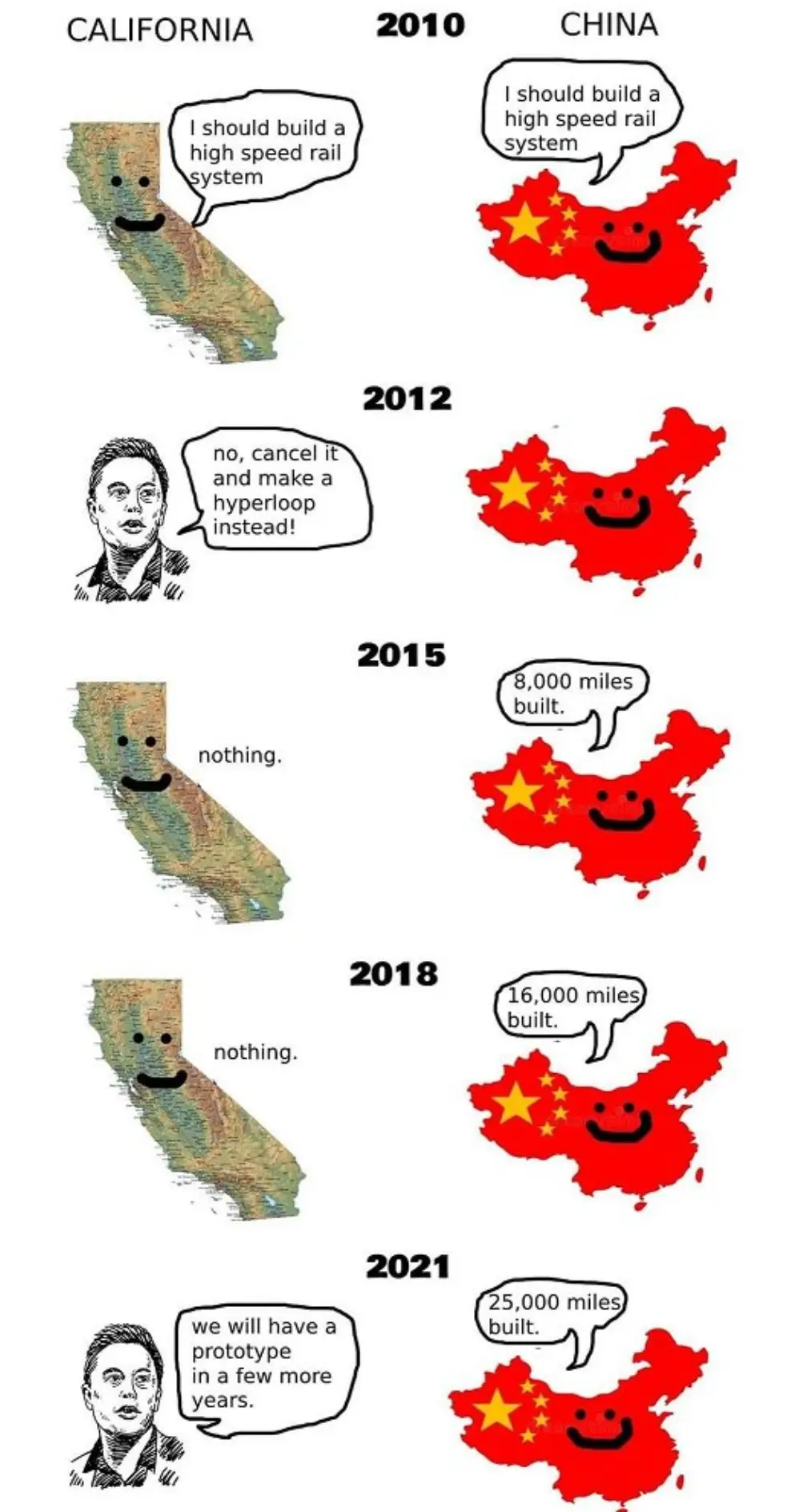this post was submitted on 11 Oct 2023
1340 points (93.2% liked)
solarpunk memes
3015 readers
7 users here now
For when you need a laugh!
The definition of a "meme" here is intentionally pretty loose. Images, screenshots, and the like are welcome!
But, keep it lighthearted and/or within our server's ideals.
Posts and comments that are hateful, trolling, inciting, and/or overly negative will be removed at the moderators' discretion.
Please follow all slrpnk.net rules and community guidelines
Have fun!
founded 2 years ago
MODERATORS
you are viewing a single comment's thread
view the rest of the comments
view the rest of the comments

State capitalism is an oxymoron, if the state controls the means of trade, then it's not private.
That's an interesting point, however it is widely accepted that states can leverage capitalism by allowing quasi-private corporations to operate semi-independently from the government.
And in fact, many of the largest industrial amd infrastructure projects are only possible by state-funded corporations to undertake them.
For example, NASA, the Works Progress Administration, the Bonneville or Hoover Dam projects, and the development of most advanced American weapons platforms. None of these were possible without direct government funding and management.
There is a surprising amount of gray area between straight up socialism and pure capitalism, and in our world pure capitalism is less common than you think.
Perfect Wikipedia:
This interpretation is not about following the definitions of a word to the teet, but rather to understand how systems of control work.
If you have the same property relations of the means of production like in capitalism, but you switch out the boss with a state bureaucrat, you functionally have the same system. But not with the private ownership, but rather with the state ownership: state capitalism.
If you would adjust your definitions of capitalism here, your political understanding would actually grow.
The boss being a state bureaucrat as opposed to a business owner is a massive distinction. Government employee's primary obligation is to their employer: the government, not the business. This dynamic changes things, it's not the same system.
Suggesting that we adjust the definitions of words in order to believe your ideology is... an interesting tactic.
What's the functional difference between the CEO of a Corporation and some surpreme ruler of a state?
You have it the wrong way around. I simply think definitions should have the purpose of understanding the world better. If a definition doesn't correlate with the world that we perceive, they're no use and should be adjusted. That is literally how language works.
I came to the conclusions of my ideology by thinking about the political definitions I have in my model of the world. If the model/the definitions don't fit, I change it/them.
I was referring to private business owners, not the CEO of a corporation. Considering I think of corporations as an opt in state, I guess I would say not much difference at all. The CEO is beholden to the shareholders (like a state is to it's people), as well as the rules and regulations of the state that legitimizes it.
This actually isn't how definitions work, wilful changing of a word to fit a specific narrative is simply dishonest and has no precedence in legitimate etymology at all. I can't stress this enough, you are outright wrong on this is a really bad way. If you are operating on real definitions and things still don't make sense, it tends to mean you're missing something. You can't perfect an ideology just from isolated thinking. What you've done is effectively tried to piece together an incomplete puzzle, then started trimming the pieces and adding extra shit to make them fit.
What you're describing as a "state", is more commonly referred to as a "goverment". (they aren't synonyms)
Yeah. That wasn't what I said, though. I said that if there's a disconnect between the definition and reality, you'd better change it. How are "real definitions" even formed? They aren't god-given! They are a maliable tool for communication.
You're claiming that there are strict definitions of terminologies, like "state", "socialism", "capitalism". And if another (coherent) definition that someone else uses, you claim that they're wrong and insult them ("adding extra shit to make them fit). At the same time, you simply ignore any valid definitions of "state" and use it, when you mean "government". Or you hide your own lack of creativity behind of what you see as rock solid definitions.
But people come into arguments with different perspectives. And there simply is no objective arbiter of definitions. That is why they have to be adjusted for reality. Or at least: be established beforehand.
So, tell me: What are your definitions of: state, capitalism, politics, ideology, socialism, communism, democracy? We clearly have different understandings of these terms and frankly: It's really hard to follow you if understanding of those terms clearly diverge in an argument.
There are many state owned enterprises that have private investors as well.
those are arguably partially privately owned, especially if those investors have influence on decision-making.